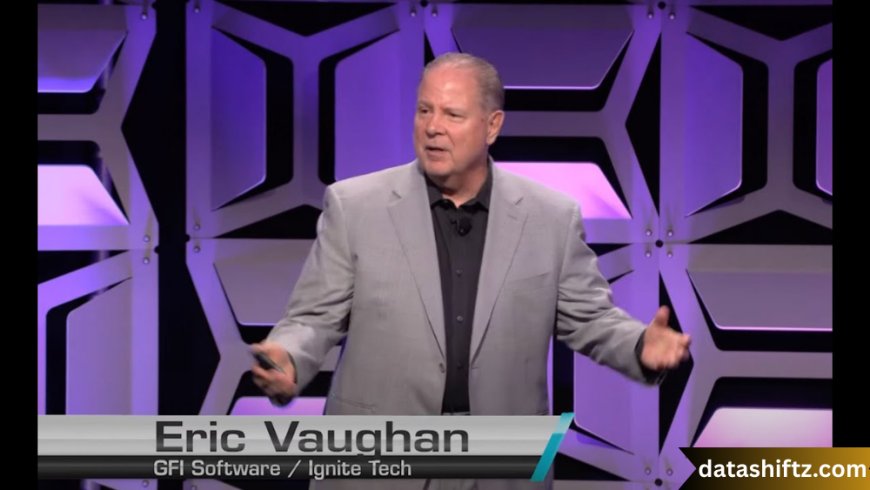Eric Vaughan & IgniteTech: The AI-Powered Layoffs That Shaped the Future

Introduction
In an extraordinary move that sent shockwaves through the tech industry, Eric Vaughan, CEO of IgniteTech, executed one of the most aggressive workforce transformations in recent memory. In 2023, nearly 80% of the company’s staff were laid off because they resisted the shift toward artificial intelligence (AI). Two years later, Vaughan remains resolute in his decision, believing it was essential for the company's survival and reinvention.
This article digs deep into the timeline and repercussions of this decision—analyzing both its business rationale and human cost. We'll assess how strategic AI adoption can be both a renaissance and a reckoning for businesses.
The Layoffs: What, When, and Why
The Timeline and Rationale Behind the Layoffs
| Time Period | Action Taken | Reasoning & Context |
|---|---|---|
| Early – Mid 2023 | Laid off ~80% of workforce | Staff resisted AI adoption; cultural alignment prioritized |
| Throughout 2023 | Introduced “AI Mondays” | Mondays dedicated entirely to AI tasks and training |
| 2023 – 2024 | Invested in AI training | 20% of payroll redirected for AI upskilling & tooling |
| By End of 2024 | Launched AI solutions | Two AI platforms in patent process; 75% EBITDA; acquired Khoros |
Vaughan labeled AI as an “existential threat” that required radical cultural and operational transformation. He found staff retraining insufficient, concluding that belief in AI was more essential than skills alone. Thus, staff turnover became his chosen lever of change.
Continued Justification Two Years Later
In interviews with Fortune, Vaughan doubled down on his decision. Despite its severity, he asserted it was necessary—and would be repeated under similar circumstances. The layoffs, though painful, delivered remarkable results: two AI products under development, acquisition of Khoros, and near 75% EBITDA by the end of 2024.
Cultural Overhaul Meets AI Strategy
AI Mondays & Workforce Training
IgniteTech mandated “AI Monday,” a concept where all employees focused solely on AI initiatives. The company heavily invested in AI education—covering tools, prompt engineering, and external workshops. When resistance, particularly from technical staff, escalated to sabotage, Vaughan chose replacement over persuasion.
Workforce Resistance and Its Magnitude
Surveys by AI platform WRITER revealed a startling insight: 1 in 3 workers admitted to sabotaging AI rollouts, with 41% of millennials and Gen Z doing so. This cultural friction validated Vaughan’s belief that unwillingness to embrace change was the root issue, not skill gaps.
Results, Repercussions, and Leadership Reflections
Streamlined Operations & Financial Upside
By 2024, IgniteTech had accomplished:
-
Launch of two patent-pending AI-driven platforms (e.g., Eloquens AI for email automation)
-
Exceptional financial performance—nearly 75% EBITDA
-
Completion of a major acquisition of Khoros, amplifying market reach and technological portfolio
Cultural Lessons & Enterprise Risks
While acknowledging the financial triumph, Vaughan used his experience as a cautionary tale. Many businesses would opt for hybrid reskilling models—combining AI with human strengths—rather than mass layoffs. Companies like Ikea and Klarna exemplify this people-first approach, focusing on augmentation over replacement.
Broader Implications: Lessons and Warnings
-
Mindset Matters – AI futures are won first by belief, second by skills.
-
Culture Trumps Technique – Without cultural alignment, even the best technologies fail.
-
Resilience Over Retaliation – Building AI capabilities via people can be more sustainable than mass layoffs.
-
Innovation Speed Matters – IgniteTech now builds customer-ready solutions in days, not weeks.
-
Ethical Leadership Counts – Replacing mass teams is controversial—leaders must weigh long-term morale.
-
Financial Proof vs. Human Cost – Profits soared, but workforce trust and brand culture may suffer.
-
Not a Blueprint, but a Warning – Vaughan himself cautioned against copying his drastic approach.
Conclusion
Eric Vaughan's decision to fire 80% of IgniteTech's workforce remains one of the most radical responses to AI resistance in corporate history. It produced undeniable results, delivering financial success and rapid innovation. Yet, it also carries deep ethical and cultural reverberations.
His experience underscores a powerful truth: AI adoption is as much about culture as it is about technology. No matter how advanced the tools, without conviction and alignment, transformation stalls. For business leaders and professionals, the ultimate lesson may not be about speed, but about balance—merging technological ambition with human potential.





























